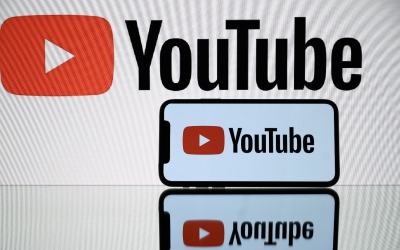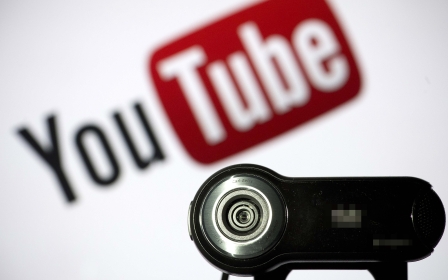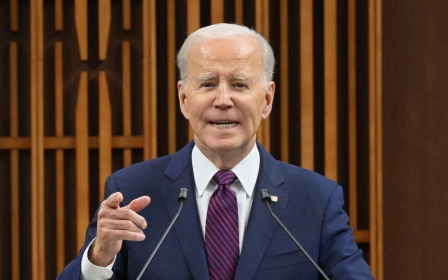US Supreme Court protects Big Tech over terror claims

The US Supreme Court decided in favour of Twitter and Google on Thursday, ruling that the social media giants could not be held liable by victims of terrorist attacks for posts that endorsed the Islamic State militant (IS) group.
The cases that targeted Google-owned YouTube and Twitter were seen as potential challenges to decades-old legal protections for tech companies that have increasingly been caught in the crossfire of lawmakers and activists on both sides of the political aisle over their content rules.
The justices declined to wade into the debate, indicating that the cases fall outside the scope of the law because the platforms did not in any case "aid and abet" IS terror attacks by hosting posts supportive of the militant group.
One case was brought against Google, YouTube's parent company, by the family of Nohemi Gonzalez, the only American killed in the 2015 Paris attacks.
Lawyers argued that the platform's algorithm "recommended that users view inflammatory videos created by ISIS, videos which played a key role in recruiting fighters to join ISIS in its subjugation of a large area of the Middle East, and to commit terrorist acts in their home countries”.
New MEE newsletter: Jerusalem Dispatch
Sign up to get the latest insights and analysis on Israel-Palestine, alongside Turkey Unpacked and other MEE newsletters
The second case was brought by the family of a victim of a 2017 attack by IS on an Istanbul nightclub. The family alleged that Twitter's failure to take down and stop recommending IS tweets constituted aiding an act of terror.
The central issue in the case was the scope of Section 230 of the Communications Decency Act of 1996, a US law that states that internet companies cannot be sued over third-party content uploaded by users or for decisions site operators make to moderate or filter what appears online.
Dismantling Section 230 could potentially leave big tech groups vulnerable to lawsuits over the content posted by users, and subject them to stricter moderation.
"Enough is enough... Congress must step in, reform Section 230, and remove platforms' blanket immunity from liability," said influential Democratic Senator Dick Durbin after the ruling.
The justices of the Supreme Court largely sidestepped the question. They said that the allegations against YouTube and Twitter did not amount to a liable infraction and therefore the debate over section 230 was not pertinent.
"We therefore decline to address the application of Section 230 (in a case) that appears to state little, if any, plausible claim for relief," they said.
Tech groups welcome ruling
The lawsuit is not the first time that social media giants have been accused of inciting violence and being complicit in violent acts, particularly against marginalised communities around the world.
In 2021, dozens of Rohingya refugees in the UK and US sued Facebook, accusing the social media giant of allowing hate speech against them to spread.
Their lawsuit demanded more than $150bn in compensation. An estimated 10,000 Rohingya Muslims were killed during a military crackdown in Buddhist-majority Myanmar in 2017.
In addition to Rohingya, Facebook has been accused of providing a platform for the incitement of violent attacks against Muslims around the world, including the Christchurch attacks in New Zealand and violence against Muslims in India.
Thursday’s ruling was welcomed by Google.
"Countless companies, scholars, content creators and civil society organizations who joined with us in this case will be reassured by this result," said Halimah DeLaine Prado, Google’s general counsel.
An association representing US tech companies said the decision was good news.
"The Court correctly recognized the narrow posture of these cases and declined to rewrite a key tenet of US Internet law, preserving free expression online and a thriving digital economy," said Matt Schruers, head of the Computer & Communications Industry Association.
Middle East Eye delivers independent and unrivalled coverage and analysis of the Middle East, North Africa and beyond. To learn more about republishing this content and the associated fees, please fill out this form. More about MEE can be found here.





